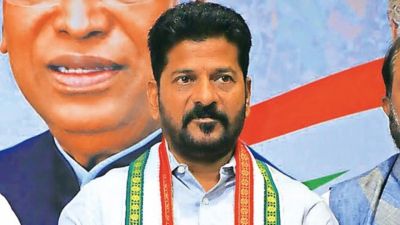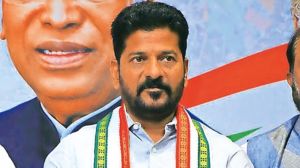How big corporate houses get away with bank defaults
APRIL 1: At his meeting with the Indian Banks Association last week, Finance Minister Yashwant Sinha urged the recovery of non-performing ...

APRIL 1: At his meeting with the Indian Banks Association last week, Finance Minister Yashwant Sinha urged the recovery of non-performing assets (NPAs) on a war footing. Sinha has reason to worry. Ten days ago, the All India Bank Employees Association (AIBEA) decided to go ahead and break the banking secrecy code which has been protecting bank defaulters. It published the defaulters list (above Rs one crore) as a fat compendium covering public sector banks, financial institutions (FIs), private and foreign banks, adding up to a massive Rs 40,000 crore of defaults. This is still lower than the official bad loan figure of Rs 58,000 crore since it excludes messy categories such as co-operative banks.
The AIBEA action will have a significant impact and the silence from thegovernment shows that it does not dare to initiate action against the powerful unions. After all, even a cursory reading shows that it vindicates that bank unions’ claim that closure of banks will allow the corporate sector to default and go scot-free. It underlines the correctness of their demand that wilful default on banks loans be treated as a criminal offence. More importantly, the list gives the Chief Vigilance Commissioner fodder to investigate the manner in which banks have supported notorious industry groups (most of whose companies also made Initial Public Offerings); ignored indicators of bad management and potential default without initiating effective action to block the leakage of funds.
One would have to argue that banking secrecy combined with bad recovery laws is against public interest. It allows bad loans to pile up until banks turn sick and have to be repeatedly bailed out/recapitalised by the exchequer — this is ultimately paid for by the ordinary citizen. Investors have also paid directly for banks’ collusion with rogue companies — it is the fact of bank funding/underwriting that lures them to invest in their public issues. Often enough banks have encouraged defaulting companies to conceal their loan default and raise public money to repay their loans. Banks have also earned fees by acting as merchant bankers, banker to the issues and providing underwriting.
The defaulter list is like a graveyard of companies which hit the market during the two primary market boom phases of 1985-86 and 1994-95. It has the wreckage of the CRB group, the infamous M S Shoes (Rs 110 crore), Rita Singh’s Mesco Airlines, Mesco Exports and Mesco Pharmaceuticals, Ganapati Exports, All Seasons Foods, Altos India (Rs 200 crore), Bombay Offshore Supply Services (BOSS), Andhra Cement, the Modern group, the Parasrampuria group (owes over Rs 400 crore), the Mardias, Hamco, Karnataka Ball Bearings, the Khemkas of NEPC , Orkay and Orson, Credential Finance among hundreds of others. Indian Bank’s bad lending policies fairly leap out of the list. All the worst defaulters owe big money to it. The East West Airline Group whose underworld connections were whispered (whose chairman Takideen Wahid was shot dead by the mafia) owes Rs 245 crore of which Rs 168 crore is due to Indian Bank alone. The high flying Parvez Damania, a must on the society pages, owes banks big chunks of money through AgritechHatcheries, Damania Capital and Damania Pharma. He also has a pile of cheque bouncing cases filed against him.
P Rajarathinam, the one time takeover tycoon is still flying high while Deve Paints (formerly Garware Paints which he took over), Deve Sugars and Deve Foods owe big money to banks. Three companies of the Business India group promoters also figure. Nadan Gadgil’s companies such as Western Paques, Western Ministeel, Western India Shipyard and finally Western India Financial Services are also in the list. The last mentioned company has Union Minister for Chemicals and Fertilisers Suresh Prabhu listed as a director. A disturbing example, begging for further investigation is Dinesh Dalmia’s DSQ Software and his group companies. DSQ Software (formerly Square D Software) is listed under willful defaulters with him owing HDFC Bank showing Rs 15.35 crore due from it as doubtful and Indian Bank Rs 3.45 crore. Its share which was supported by market operator and newly-turned venture capitalist Ketan Parekh, and quotes at Rs 1630 (down from a high of Rs 2800). Informed sources say that Dalmia is giving up managementcontrol and could be out of the picture.
Further, DSQ Industries owes money to Vysya Bank (Rs 3.85 crore), Indian Bank (Rs 48.14 crore) and Credit Agri Indosuez (Rs 8.33 crore). Then there is DSQ Bio tech, trading at Rs 550 on the Bombay Stock Exchange (BSE) but which owes Rs 12.61 crore to Bank of India (BOI), Rs 19.43 crore to State Bank of India (SBI) and Rs 11 crore to Indian Bank. The same Dinesh Dalmia owes another Rs 55 crore to Indian Bank through Square D Textiles and Rs 8.27 crore to Indian Bank again through Square D Beverages. Should the Securities and Exchange Board of India (SEBI) not investigate who is buying these shares? Vakrangee Software is another company on the defaulter list quoting at Rs 288 after having touched a high of Rs 620.
The defaulters’ list is a who’s who of big industry houses, many of them heads of powerful industry associations. G P Goenka has Herdillia Unimers, former CII chief Rajive Kaul has Weleb-Nicco and Webel Communications; another former CII chief Rajesh Shah has Bombay Forgings owing Rs 10 crore to Bank of Maharashtra, even Baba Kalyani has Kalyani Seamless listed. Kulwant Rai’s Usha Microprocessor Controls is a defaulter — he is on the IDBI board. The Birlas have K K Birla’s Indian Steam Ship (Rs 92 crore), S K Birla’s Jiyajee Rao Cotton and Yash Birla’s Zenith. The Tatas have Tata Mills, R P Goenka (India Polyfibres (Rs 57 crore), Tatanagar Transport Corporation), Bhai Mohan Singh (Montari), Raunaq Singh (Gujarat Perstop, Raunaq Auto), the Thapars (JCT, Waterbase) and the Singhanias (J K Cotton and J K Synthetics over Rs 300 crore). The flamboyant Vijay Mallya who makes more news these days for his political ambitions, his horses and his spectacularly lavish parties is on the honours list with Best & Crompton, United Breweries, Mangalore Chemicals and Fertilisers languishing deeply in the red. The Modis have a whole line up — Modi Stone, Modi Spg & Wvg Mills, Modi Carpets and Modi Threads, Modi Industries, Modi Mirrlees Blackstone. The Mittals have had Ispat Profiles on the list for a long time, but it has not stopped them getting several thousand crore of rupees more for a clutch of companies who are also in trouble. Those not on the list are another indicator how inadequate it actually is. Only Essar Power of the Ruias is on the list, even though institutions have bailed out, rescheduled and helped the beleaguered group. The Jindals, Ruias, Mittals, Mafatlals who have all been helped with waivers and rescheduling of loans are barely represented — an indicator that unless recovery is indeed initiated on a war footing, severalthousand crore of rupees will be added on in no time at all.
Author’s email: suchetadalalyahoo.com





- 01
- 02
- 03
- 04
- 05


























